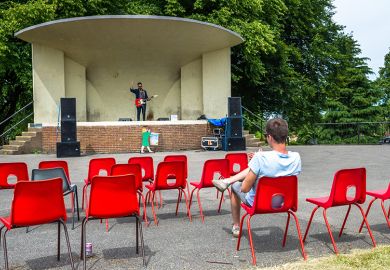Chinese diplomats have warned students in Australia to be alert to housing and phone scams, as classes resume after three months of summer holidays and up to three years of remote study.
In messages posted on the website of China’s consulate general in Sydney, students are urged to “pay attention to the safety of rented houses”. They should choose “a qualified housing intermediary…carefully read the terms of the lease, and keep the housing rental contract”, according to the English-language version of the notice.
Students should also be wary of telephone “fraudsters”, it says. “If you receive a recorded phone call…informing you that you are involved in illegal entry [or] money laundering, these are common tricks used by scammers. Please hang up the phone decisively.”
The message urges students to be “vigilant” at night, to report problems to the police and to avoid being provoked by the “inappropriate words or deeds” of “unscrupulous” elements. “Please remain calm and respond flexibly. Get out in time and rationally. Avoid escalating into physical conflicts.”
International education analyst Angela Lehmann said the consulate general’s message was “unusual” and a sign of improving relations between the two countries.
Dr Lehmann said that in the past, Chinese authorities had issued exaggerated safety warnings as part of a diplomatic war of words with Australia. This announcement, by contrast, contained useful practical advice on genuine threats such as traffic and ocean currents as well as inadequate housing and phone scams.
“They’re really just trying to inform their students,” said Dr Lehmann, head of research with the Lygon Group consultancy. “They’re not making it a political issue.”
Dr Lehmann said China’s snap announcement in January, when it told students that degrees obtained online would no longer be certified in China, should also be interpreted as a sign that Beijing wanted to normalise relations.
The timing had been “clunky”, giving students unrealistically short notice that they were expected on overseas campuses, “but overall it was a signal of positivity. Chinese authorities saw the end of online accreditation as a positive move and a gesture towards Australia and other host countries.”
The consulate’s notice warns students not to look at their phones while crossing roads, and to be mindful of “wading safety” in coastal waters. “Pay special attention to rip currents. Do not take pictures in places [with dangerous] waves…or on the edge of cliffs.”
Students should also be wary of risky activities such as skydiving, ballooning and rock fishing. “Do not blindly pursue excitement,” the notice says. “It is recommended to participate with caution.”
Register to continue
Why register?
- Registration is free and only takes a moment
- Once registered, you can read 3 articles a month
- Sign up for our newsletter
Subscribe
Or subscribe for unlimited access to:
- Unlimited access to news, views, insights & reviews
- Digital editions
- Digital access to THE’s university and college rankings analysis
Already registered or a current subscriber? Login








